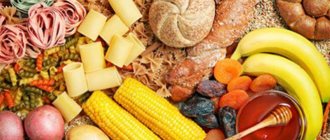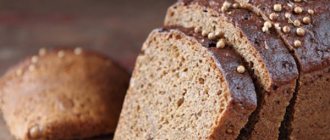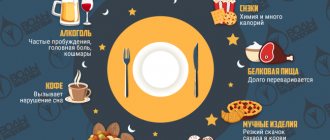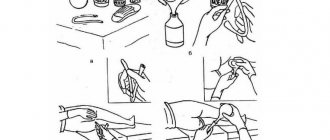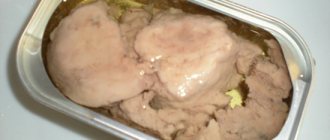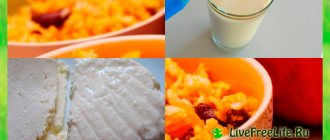Products with carbohydrates terrify many lovers of healthy eating, losing weight and athletes. Are they really harmful to our body? How to properly consume carbohydrates? Is it possible to eat carbohydrates in the evening? Should you deny yourself a small sandwich with hard cheese, toast or cottage cheese with honey in the morning? Should you include simple carbohydrates in your diet? If yes, then in what quantity?
Carbohydrates at night - no need to be afraid!
Carbohydrates at night are, according to many, the number one sin when losing weight. As the stereotype goes, you shouldn't eat carbohydrates at dinner before bed because consuming sugar will lead to excess weight. How true is this?
In fact, the timing of carbohydrate intake has always been a controversial issue, and to this day there are different opinions on this matter. Carbohydrates are considered the main cause of fat storage, so they are often recommended to be avoided in the evening and replaced with protein. However, recent studies show that protein disrupts natural processes in the body, in particular tissue regeneration.

Does eating after six make you fat?
Everything is as obvious as possible: after six it is not only possible, but also necessary to eat. The exception is when you go to bed at six in the evening.
Long periods of fasting (eight hours of sleep can also be considered fasting) are perceived by the body as stress. And in response to it, he tries to store up an energy source - fat. Now imagine that you haven’t eaten anything for five or six hours before going to bed.
Alas, weight loss works according to one law: burn more calories than you consume.
How to reduce appetite: foods that reduce appetite
Published: November 6, 2019
It is better to prevent the problem of excess weight than to try to solve it later. Reducing your appetite is one way to prevent weight gain, as well as an additional way to lose weight. How can you resist the temptation to open the treasured door...
no comments yet

Why does the body need carbohydrates?
Carbohydrates are the main source of energy that gives us strength for training. They are used in muscles in the form of glycogen, a substance that allows muscles to grow, function properly and repair. So why are carbohydrates credited with increasing fat and not increasing muscle?
Let's look at the structure of a lipid (fat molecule). Each such molecule consists of glycerol and fatty acids. Glycerol is produced as a result of glucose metabolism - all carbohydrates are converted into their simplest form, which is responsible for blood sugar levels. Carbohydrates combine with fatty acids and create more favorable conditions for fat deposition. If you have high blood sugar, excess fat will accumulate. What causes such high sugar levels? Constant supply of carbohydrates.
This reasoning is quite logical, but it has its exceptions. No need to exclude carbohydrates from your diet!
There are at least two periods during the day in which you can eat as many carbohydrates as you like: after training and during your last meal before bed.
What is the problem?
A no-carb diet after X number of hours sounds good in theory, but doesn't work well in the real world.
Disruptions
If you move most of your food to the first half of the day, it will be difficult to fight evening hunger. And it will definitely come, because it is impossible to eat enough once and for the whole day, no matter how much you eat.
Social isolation
Eating in the evening is part of the culture of our society. And living in a world where you can't go out to dinner with friends or at home with your family is hard. This is one of the reasons why so many people hate diets.
Unnecessary complication
Consistency and patience are two of the most important aspects of dieting that few people discuss. Instead, we're concerned with carb timing, macronutrient ratios on the plate, glycemic index, insulin index, and other things.
Rules help organize nutrition, but unnecessary unreasonable restrictions make the diet less compatible with life. With more freedom in choosing how and when you eat, you're more likely to stay on your diet longer.
The “no food after X hours” diet may not suit everyone, because everyone has their own lifestyle, daily routine and activity level. Choosing the frequency of meals and the distribution of foods throughout the day should be realistic and convenient for you.
Carbohydrates at night as the last meal before bed
We usually try to avoid eating carbohydrates in the evening as this can lead to weight gain. Instead, we lean on the protein. After all, it is said to help the body recover at night. It is not true!
Dinner should consist mainly of carbohydrates, not proteins. Why? First of all, for a good night's sleep.
Before going to bed, it is recommended to increase the level of serotonin, known as the hormone of happiness. It calms, relaxes, reduces physical and mental activity. Serotonin acts as a neurotransmitter and at a later stage it is converted into melatonin, the sleep hormone. This is the opposite of adrenaline and cortisol. Thanks to melatonin, we sleep well and fully recover.
Carbohydrates at night are a great solution. But you need to know which carbohydrates are best consumed in the evening.
Before bed, eat carbohydrates with a low glycemic index (GI), such as whole grain pasta, whole grain rice, and whole grain cereals. They will ensure good sleep, will not add excess fat and will restore the body's strength. Don't forget to eat carbohydrate foods about 2 hours before bed.

What happens if you don't eat carbohydrates?
The effect of a deficiency of carbohydrate compounds has a bad effect on the body. In chronic form, a lack of nutrients will lead to the gradual disappearance of glycogen in the liver, which threatens fatty degeneration of this important organ. Among other things, the body without carbohydrates begins to use proteins and fats as energy, causing the production of ketones - amino acids. Excessive oxidation of the two remaining nutrients causes poisoning of brain tissue, leading to acidotic coma. Symptoms of carbohydrate deficiency:
- weakness;
- tremors in the hands;
- nausea;
- sweating;
- headache.

What foods make a person fat?
Published: 06.25.2020
What foods make a person fat? After all, it would seem that in order to lose weight it is enough to exclude fatty and sweet foods from your diet and move a lot. This is true, but it is worth remembering that there are foods that provoke hunger...
no comments yet
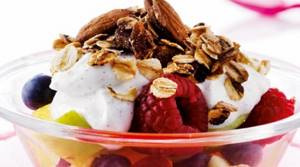
Why shouldn't you eat protein before bed?
After a carbohydrate meal, we usually feel blissfully calm. All thanks to the serotonin described above. As a result of carbohydrate consumption, the production of the amino acid tryptophan increases, which, upon reaching the brain, is converted into serotonin. Protein-rich foods are low in tryptophan, so avoid eating them at night. What's more, other amino acids in protein make it harder for tryptophan to reach the brain, further reducing sleep quality.
Here are some more arguments in favor of eating carbohydrate foods instead of protein foods before bed:
- The last meal before bed, consisting of carbohydrates (necessarily with a low GI), triggers the following processes: an increase in tryptophan levels, an increase in serotonin levels, an increase in melatonin levels, which ensure good restful sleep and thus allow the body to fully recover.
- Protein is poorly digested and increases thermogenesis (the process of maintaining a constant body temperature) and speeds up metabolism. This is an undesirable effect because it is a slow metabolism, which is a prerequisite for good regeneration during sleep, rather than a faster metabolism (which will be more beneficial during the day). Carbohydrates are better absorbed, do not burden the stomach and calm the body.
- The protein prevents tryptophan from entering the brain and activates another hormone, tyrosine, which produces the unwanted hormones before sleep, dopamine and norepinephrine. They may cause problems sleeping.
- Why is proper sleep so important for people who exercise and lose weight? Poor sleep causes stress hormone levels to rise, which interferes with the growth of another very important hormone, growth hormone (GH). Its main working hours are at night. As a result, its beneficial effects of GH, i.e. muscle growth and regeneration, will not be properly activated.
- When we don't get enough sleep, the metabolic processes in our body slow down (the so-called loss of metabolic memory), which means we get fat!
What Science Says

A recent study conducted at the Hebrew University of Jerusalem and published in the journal Obesity examined the issue of evening carbohydrates.
The participants were divided into two groups - control and experimental. Both groups were put on the same calorie deficit for six months with the same amounts of protein, carbohydrates and fat. One group ate carbohydrates throughout the day, and the second group ate 80% of all carbohydrates at dinner. The results showed greater weight loss, abdominal circumference and reduction in body fat mass, greater satiety and less hunger in the second group.
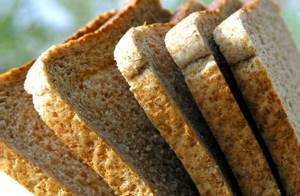
Of course, even though this group lost more fat and had better markers of health at the end of the study (better insulin sensitivity, increased good cholesterol, and decreased bad cholesterol), it is too early to say that this is exactly what you need to eat to lose weight quickly. . More research is needed. But one thing we can take away from it for sure: carbohydrates for dinner by themselves do not make a person fatter, bypassing the daily calorie requirement.
Carbohydrates and weight loss - how to eat carbohydrates and not gain weight?
Even when losing weight, you don't need to give up carbohydrates! Here are a few simple rules to follow when losing weight:
- Consume simple carbohydrates only in the first half of the day and after finishing your workout.
- Complex carbohydrates can be eaten with impunity at any time of the day.
- Be careful with a high glycemic index (GI), as it causes blood sugar levels to rise and fall suddenly, and these glucose fluctuations contribute to the accumulation of fat in the body and the feeling of hunger, that is, an increase in appetite.
- A high GI will only be beneficial after a workout, as it replenishes muscle glycogen stores the fastest.
Harm of fast carbohydrates
The healthiest foods do not necessarily have the lowest calorie content. Sometimes foods with fast carbohydrates may not seem so high in calories to us, but they will cause a lot of harm. These substances have a negative effect on the endocrine system. Due to the entry of sugar into the gastrointestinal tract, the adrenal glands and pancreas quickly wear out. They simply can't handle the heavy load. That's why those with a sweet tooth often get diagnosed with pancreatitis.
Eating fast carbohydrates also threatens changes in acidity in the intestines. If the balance of acid and alkali changes, fungi begin to actively multiply. Immunity decreases. Dysbacteriosis and candidiasis begin.
Nutritionists call simple carbohydrates empty calories. There are almost no nutrients in such products, but there are more than enough calories. Our body simply does not need so many calories, and it stores them in reserve on our organs, hips and stomachs. Eating carbohydrate foods threatens to increase insulin levels. Its excessive amount negatively affects the breakdown of fat, and, on the contrary, contributes to the fact that the amount of adipose tissue in our body grows.
The rise in insulin leads to a state of peace and joy. Therefore, after a very short time (from 10 minutes to 1.5 hours), the body says: give me supplements! And you again want something sweet or starchy.
Eat simple carbohydrates after evening workouts
Regardless of the time of training (morning, afternoon, evening), you need to consume simple carbohydrates before and after it. This time is called the carbohydrate window - at the beginning of the workout and after its completion, the muscles for which glucose is the main nutrition will need a solid portion for growth and recovery. In this case, carbohydrates will definitely not be stored as adipose tissue.
Carbohydrates after an evening workout are just as necessary as after a morning or afternoon workout.
Remember, that:
- the main consumer of calories from simple carbohydrates is muscle, not fat tissue;
- a portion of simple carbohydrates after training protects the body from attacks of hunger, namely, a sharp and significant drop in blood sugar causes the deposition of adipose tissue;
- The best digestible carbohydrates are in liquid form. They do not burden the stomach, so they are absorbed much faster. This is better than eating a large meal immediately after a workout, because such food is not digested normally anyway. If you can't drink liquid carbohydrates, eat a banana - it's just as good.
Eat carbohydrates on your diet and don't worry!

Sleep disorders and weight gain
Separately, I note that almost all studies that have studied the connection between sleep, metabolic function and excess weight gain have shown that even one sleepless night disrupts metabolism, increases cortisol levels and sharply worsens the body’s response to insulin.
The stricter the daily routine (going to bed and waking up at the same time), the better the metabolism works and the more efficiently the body uses energy from food. Not for fat reserves, but for brain function and other current energy needs.
